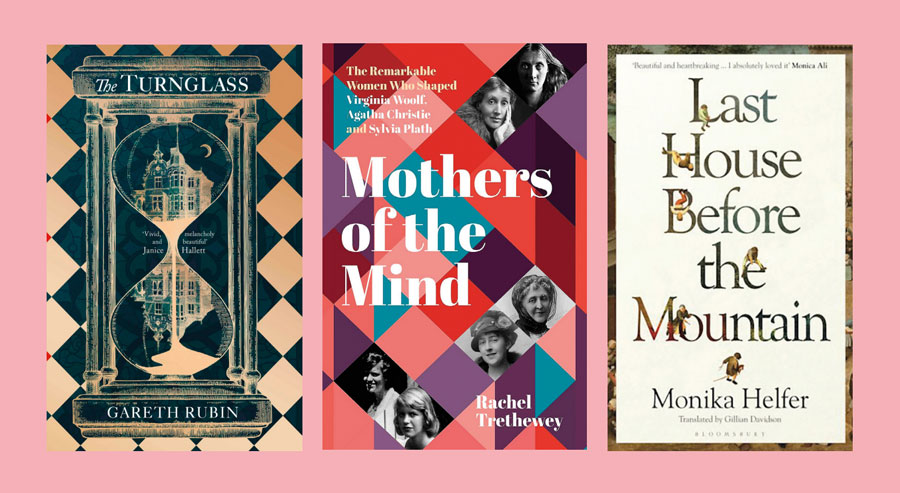 A clever thriller, a study of mothers and their literary daughters and an evocative family saga are all perfect for lively discussion. Just add wine and nibbles...
A clever thriller, a study of mothers and their literary daughters and an evocative family saga are all perfect for lively discussion. Just add wine and nibbles...The Turnglass by Gareth Rubin (Simon & Schuster, £14.99)
This is two books in one. A pair of connected stories are printed back-to-back and can be read either together or separately - and it is an intriguing experience. Rubin deserves top marks for originality and for braving such a niche literary format on his third outing as a novelist - a daring undertaking.
One story focuses on a young doctor called to the bedside of a dying cousin on the eerie island of Ray, off the coast of Essex, in 1880. The location, Turnglass House, is a haunting building that has always ‘had something corrupt and malign about it’.
The other story is set in 1930s California and concerns an aspiring Hollywood actor who finds himself unwittingly embroiled in the death of a best-selling author.
Intriguing as both stories are, with thought-provoking plots and imaginative twists, what really stands out is the masterful way the tales are cemented together.
Believable characters and accomplished characterization add to the suspense, and with Rubin’s expressive and easily digestible prose both stories can be appreciated as old-fashioned murder mysteries. Pivotal and dramatic scenes set in a library pay homage to the art of storytelling, and bibliophiles will love it.
Elizabeth Fitzherbert
Mothers of the Mind: The Remarkable Women Who Shaped Virginia Woolf, Agatha Christie and Sylvia Plath by Rachel Trethewey (The History Press, £25)
Using original sources, Trethewey chronicles the complex and contradictory bonds between three famous authors and their mothers.
Woolf described her mother, Julia, as a woman of contrasts who dominated everyone: she championed the cause of the poor but campaigned against women’s rights. After being sexually abused by her half-brother, Woolf felt her mother had failed to protect her.
Christie claimed there was something ‘magnetic and healing’ about her mother Clara’s love. In April 1926, while Christie was on a train, she felt a coldness through her body and instinctively knew her mother had died. The loss spurred the most talked about episode in the writer’s life: she went missing for eleven days.
Plath had ‘two mothers’: one loving and the other filled with resentment. They also had a psychic connection, and when Plath disappeared in 1953 Aurelia knew she had tried to take her own life. Three days later Plath was found alive, having overdosed on pills.
These three portraits beautifully capture the variety and complexity of mother-daughter relationships.
Lyndsy Spence
Last House Before The Mountain by Monika Helfer translated by Gillian Davidson (Bloomsbury, £14.99)
On the edges of an Alpine village a family is scraping out a living in dignified poverty: our first glimpse of stunning, dark-haired Maria is of her pegging out laundry. Her beauty makes her the object of male desire and female suspicion, but Maria, her husband Josef and their growing brood of children hold themselves apart. When Josef is called up to fight in the First World War Maria is left to fend for herself. The mayor brings her supplies, but with strings attached, and when Maria rejects his advances a crisis unfolds.
On a visit to a nearby town a chance encounter with a man ignites Maria’s own desires. Wagging tongues and the spurned mayor conspire to increase the villagers’ animosity, with devastating consequences. Her husband returns from the front, but the warmth of their marriage is gone.
Inspired by her own family history, Helfer captures ordinary lives and the inner workings of people who would otherwise pass unnoticed. This is an imaginative preservation of the secrets and loves of a family marked by poverty and war, and the repercussions down the generations. The rich narrative and cast of characters make it an ideal book club read.
Juanita Coulson







